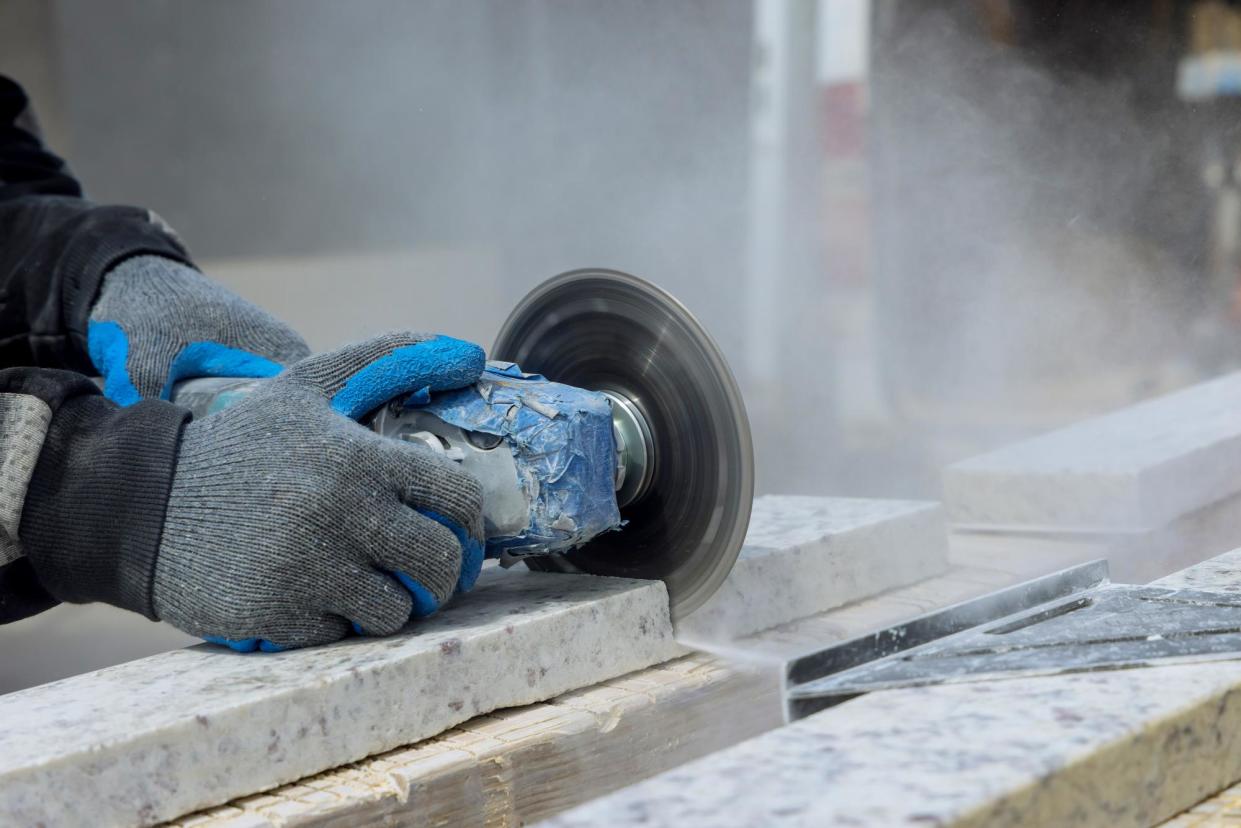‘Dangerous product’: Australian ban on engineered stone to begin next year

Australia will ban the use, supply and manufacture of engineered stone, in a move that has been described as lifesaving.
State and federal workplace ministers met on Wednesday, where they agreed to ban the material, which is commonly used in kitchen and bathroom benchtops. When cut, the product releases fine silica dust that has been found to cause deadly diseases and cancers.
A communique of the meeting said the decision was unanimous, with the majority of jurisdictions to have a ban in place from 1 July 2024.
Victoria, Queensland and New South Wales issued statements after the meeting, in which they committed to this date.
“No one should be exposed to fatal risks simply by going to work. It’s just unacceptable,” Victoria’s minister for WorkSafe, Danny Pearson said.
Queensland’s industrial relations minister, Grace Grace, said: “This is a dangerous product that’s known to cause the potentially fatal disease silicosis, and it has no place in our workplaces.”
New South Wales’ minister for work health and safety, Sophie Cotsis, congratulated “all workers, unions, medical experts and businesses that I stood side by side as we campaigned for this day”.
“My message to business and consumers is this: it’s time for you to stop buying this stuff. Don’t enter into any further contracts,” she said.
The federal government has also flagged a customs prohibition on engineered stone, effectively banning the importation of the product.
Ministers will consider at another meeting in March 2024 whether there will need to be a transition period for engineered stone ordered prior to Wednesday. But in the interim, they have urged businesses and consumers not to enter into any new contracts.
The decision follows a recommendation by Australia’s workplace safety watchdog to prohibit the use of all engineered stone, irrespective of crystalline silica content, to protect the health and safety of workers.
The Safe Work Australia report found the rates of silicosis and silica-related diseases have “risen substantially in recent years, with a disproportionate number of diagnoses in engineered stone workers”. It said there was “no evidence” that lower levels of crystalline silica could be safe for workers cutting and grinding engineered stone.
The release of the report prompted several businesses, including Bunnings and Swedish furniture giant Ikea, to phase out its engineered stone products. Many states, including Queensland, Victoria and Western Australia had already banned dry-cutting of the stone.
Safe Work Australia’s chief executive, Marie Boland, on Wednesday said the prohibition will make workplaces “safer and healthier”.
“The cost to industry, while real and relevant, cannot outweigh the significant costs to workers, their families and the broader Australian community that result from exposure to respirable crystalline silica from engineered stone,” Boland said.
“Continued work with engineered stone poses an unacceptable risk to workers, which is why we recommended a prohibition on the use of all engineered stone.”
The Australian Council of Trade Unions assistant secretary, Liam O’Brien, said the ban would “save lives”.
“We thank ministers for putting workers lives ahead of corporate profit,” O’Brien said.
“Engineered stone is a fashion product that is killing the workers who make it. With alternatives readily available, why are we risking the lives of tradies for a fashionable finish in our kitchens?”
Law firm Maurice Blackburn, which represents workers who have been diagnosed with deadly silicosis and other related autoimmune diseases, also welcomed the decision.
“Like asbestos, there is no safe level of workplace exposure to silica dust,” principal lawyer, Jonathan Walsh, said.
“We welcome this ban on engineered stone. It will save lives and protect countless others from diseases caused by dangerous silica dust.”
According to the ministers’ communique, exceptions will be introduced for the removal, repair, minor modification or disposal of engineered stone installed before 1 July 2024, as well as for products with trace levels of silica under 1%.
Safe Work Australia has been tasked with drafting amendments to the model workplace health and safety regulations, which will then be added to each jurisdiction’s existing laws.
It has also been asked to develop a national framework for legacy engineered stone products and a process for assessing new products for possible exemptions, prior to the ministers’ March meeting.

 Yahoo News
Yahoo News 
